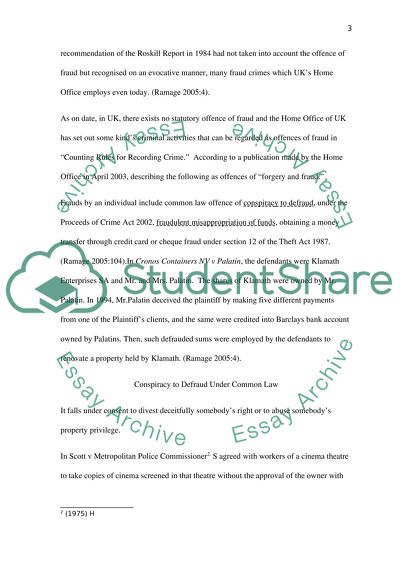Cite this document
(“The Fraud Act 2006 in the UK Essay Example | Topics and Well Written Essays - 2500 words”, n.d.)
Retrieved from https://studentshare.org/law/1430212-frank-is-a-senior-accountant-in-a-large-company
Retrieved from https://studentshare.org/law/1430212-frank-is-a-senior-accountant-in-a-large-company
(The Fraud Act 2006 in the UK Essay Example | Topics and Well Written Essays - 2500 Words)
https://studentshare.org/law/1430212-frank-is-a-senior-accountant-in-a-large-company.
https://studentshare.org/law/1430212-frank-is-a-senior-accountant-in-a-large-company.
“The Fraud Act 2006 in the UK Essay Example | Topics and Well Written Essays - 2500 Words”, n.d. https://studentshare.org/law/1430212-frank-is-a-senior-accountant-in-a-large-company.


